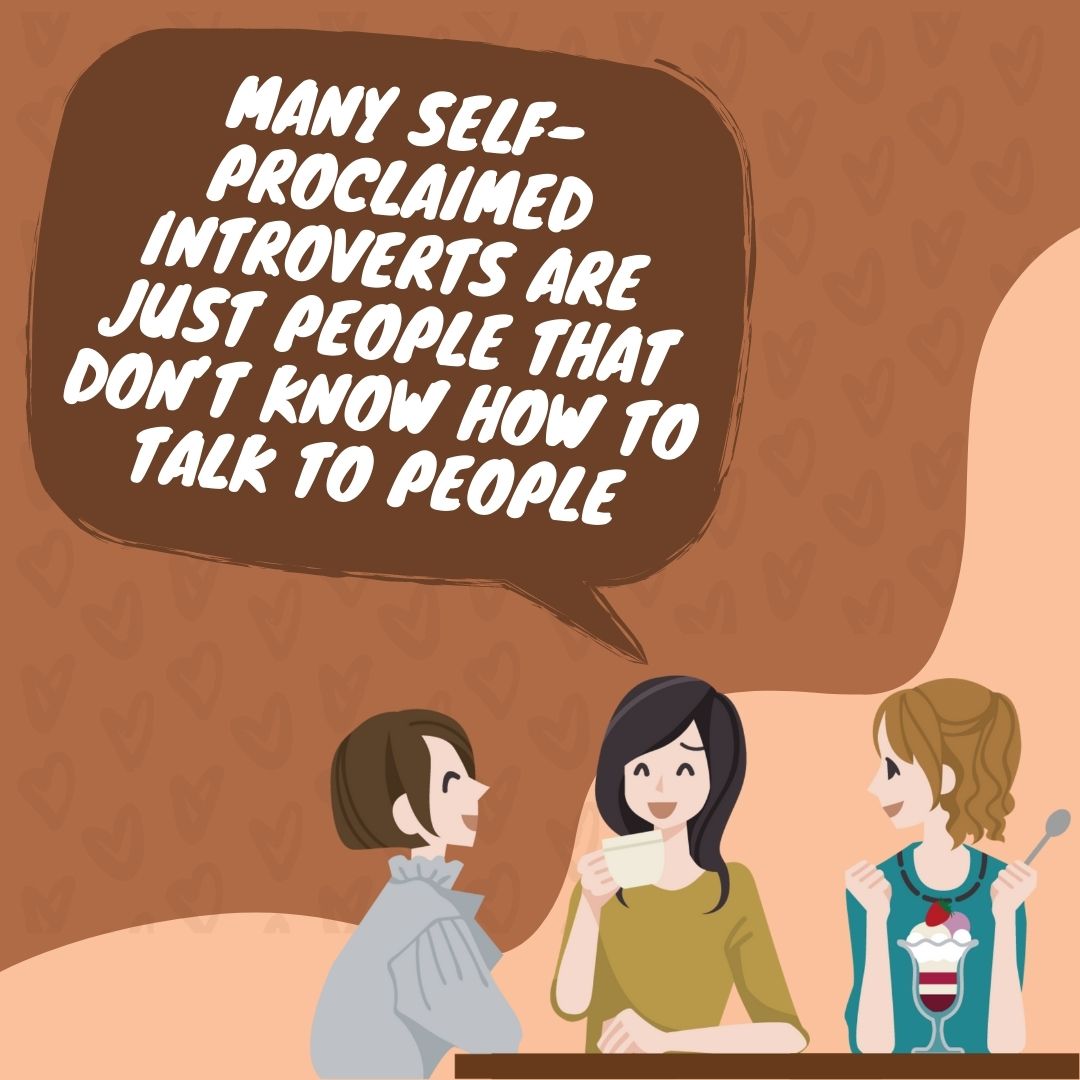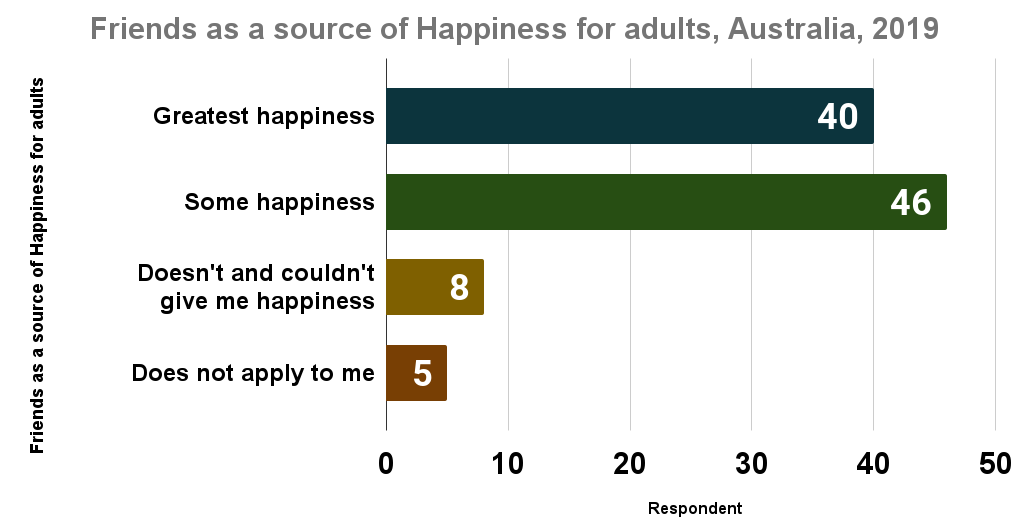How to Get Better at Talking to People
WhatToGetMy Instructional Article
I get the impression that I am uninteresting. When I chat with people, I feel like I bore them to death and I often find myself struggling to keep conversations alive. I also get into unnecessary arguments that I don’t want.
- Here are a couple of things that happen to people who don’t know how to talk to people; 1) they get snubbed a lot, 2) they easily make enemies, 3) they find it difficult to make new friends or maintain friendships, 4) they struggle with loneliness, and 5) they adopt a flawed perception of self, people and life in general.
- Did you know that the only way to get better at talking to people is by talking to people? Kidding! You can definitely learn a couple of things from experts who are good at making conversations. In this article, we’ve provided you with sufficient tips on how to get better at talking to people.
“Many self-proclaimed introverts are just people that don’t know how to talk to people”

Learning how to talk to people can improve the quality of your relationship as a parent, child, brother, sister, friend, colleague, relative, partner, etcetera. As social beings, interaction is an essential part of our living. Our physical, mental and emotional well-being depends on it and studies have proven that having a strong network of people you bond with does affect health, happiness, and longevity. This study by Statista also proves it.

Conversation Psychology
As far as conversation is concerned, there are three things people pay attention to and so should you;
1. Body language
We all send non-verbal signals with our body and people respond to these signals whether we are aware of it or not. Many communication experts agree that our body language weighs a lot more than our words or tone of voice as far as communication is concerned and this makes a lot of sense. Haven’t you ever wondered why a person was able to tell that you are hurt, embarrassed, worried, or acting strange without you saying anything? Haven’t you ever wondered why we fail to approach certain people because they looked angry, too serious, or uncomfortable? Since our body language says a lot without us verbalizing any word, we should pay enough attention to it.
2. The tone of your voice
Any word or phrase can mean anything depending on how it is voiced. When you converse with people, how do you sound? Angry, happy, nervous, persuasive, rude, authoritative, or inquisitive? Communication experts note that the tone of a person’s voice can be analyzed based on the volume, pace, pitch, resonance, pause, and intonation. For example, Volume refers to how loud you speak. Are you yelling, or whispering? The volume of your voice can be analyzed as being rude, and arrogant when you yell at people.
3. Your choice of words
Although your choice of words weighs little in comparison to your body language and tone of voice, still, communication is often incomplete without words. Your ability to talk to people clearly, confidently, and maturely will either strengthen or weaken your relationship. Your choice of words could hurt your relationship, help you maintain a relationship, or help you grow your network. For example, instead of saying ‘get out’, you might say ‘please leave’.
What is stopping you from having good conversations with people?
1. Fear.
A good number of psychologists have written about people’s fear of social interaction especially when it involves starting a conversation with strangers and we agree with their many views. Sandstorm & Boothby, (2021) identified three types of fear in their study;
A). The fear of conversation liking. It means that people are bothered about their conversation partner not liking the conversation they initiate. This fear then stops them from initiating conversations.
B). The fear about interpersonal liking. In this case, people fear that they might not be liked by others or that no one will be interested in talking to them. This fear hinders them from approaching people to join in on a conversation or initiate one.
C). Fear about their conversational ability. People fear that they are unable to start a good conversation, sustain it and drive it home. They are afraid to be seen as ignorant or incompetent by others and therefore they avoid talking to people. They fear humiliation.
Besides fear, what might be stopping you from having a fulfilling, and engaging conversation with people are; poor conversational habits, emotional sensitivity or temperament, and character.
2. Poor conversational habits.
We could give you a couple of ideas of things to talk about with your mom, Interesting things to talk about with friends, and how to strike the perfect conversation with strangers but if you display certain conversational habits, you will most likely lose people’s attention and friendship easily. Example of poor conversational habits that kills people vibe when chatting with you are;
A). Monopolization of conversations.
People are agreeable to a certain extent but will start to get irritated when they observe that you often exert yourself or ideas in conversations. If you place yourself at the center of every conversation, impose your ideas on others quite often, or talk too much without giving other people much chance to express themselves, people will eventually get tired of you and snub you.
B). Being pessimistic most of the time.
There is nothing wrong with a healthy amount of pessimism. People can tolerate occasional negativity too but if you always see the negative side of almost everything and everybody, you will assuredly piss people off, paint yourself as spooky, and become too draining to be around. Nobody wants to hang around people that drain the positive energy they have.
C). Making too much demand.
Demands come in different forms;
- Constantly asking for help. Conversing with people that ask for too much help puts a person at risk of doing things that they don’t want to do. This is very annoying and uncomfortable.
- Constantly seeking attention. Asking for too much attention is inconvenient for anyone because people have their own life to live. At a point, such demand begins to feel like pestering.
- And lastly, Being hard to please. People that find it difficult to appreciate people and their efforts usually address people condescendingly. Their facial expressions, gestures, and words ooze with discontent and no one wants to handle such.
D). Interruptions.
When you interrupt people easily whenever they converse with you, they might keep silent and allow you to continue the conversation, but by the time you stop speaking, they’ve either forgotten the point they wanted to make or have lost interest in the conversation.
E). Short responses.
What makes a conversation engaging is when people express their opinions fully so that the person they are conversing with understands what is being said. If you respond with just ‘yes’, ‘ok’, ‘hmm’, ‘no’, ‘I think so’, when you should have said more, you will kill the conversation eventually.
F). Projecting and assuming.
It sucks to project one’s ideologies on others. It is also bad to assume that a person is a certain way and address them based on your assumption. When you start a conversation with someone you just met or anyone, allow them to tell you who they are or what they have done. People should not feel like you hold them on a certain pedestal or that you see them a certain way which is not true. No one wants to compete with other people’s imagination.
G). Defensive, confrontational, and aggressive.
A person who comes off as too defensive, confrontational, and or aggressive is hardly fun to be around. Making conversations with such a person will leave you on edge. They cannot be corrected easily because they tend to argue a lot, they always want to give petty clapbacks, and can hardly appreciate a good sense of humor because they see it as an attack. It is exhausting to converse with a person like this.
H). Absent-mindedness.
When a conversation is ongoing and a person repeatedly tries to regain your attention, you’ll eventually kill their mood. It is best to postpone the conversation for another day and end it than be disrespectful to the person you are conversing with.
I). Sympathy seeking.
People who talk to you will have a poor perception of you when you present so many sad tales about yourself, to gain their pity. It is tiring to hang around someone who finds it hard to move on from situations.
3. Emotional sensitivity.
To wear your emotions up your sleeves is not the best thing to do. There are times when it is good and admirable and needed but not all the time. It could portray you as irrational and or difficult in certain instances. When a person can anticipate your prickliness or sensitivity, they might learn to make decisions for you without you knowing regardless of the position they fill in your life. And when they do this, you might begin to complain of being left out of conversations and decisions because you will feel a sense of being left out. Imagine your son not telling you about a broken plate because he knows that you will snap. A prickly person is likely to shove people away easily and will find it hard to sustain healthy relationships.
4. Behavior/ actions.
A lot can be inferred from a person’s actions. It can rat out unspoken words, emotional state, and in some instances, intentions. Having conversations with people does not only entail the words you say but also the things you do. Your gestures do not stop interacting with people just because you are not verbally conversing with them. For example, if you yawn a lot and fail to make eye contact when a conversation is ongoing, people chatting with you will take it as a hint to end the conversation.
5. Lack of self-care.
Self-care is part of what makes you approachable. We understand that life has dealt poorly with people and personal hygiene has become a luxury for them. They just can’t afford it. But if you are not in that category, you have no reason to ignore yourself. People should not have to worry about being seen around you or being around you.
Learning how to talk to people
1. Look approachable, be approachable.
What does your body language say? Your body language is the first thing people look at before any verbal conversation happens. Your body language tells people to either approach you, ignore you, be defensive, or welcome you. Be conscious about wearing positive facial expressions and display friendly gestures daily.
- Smile often or keep a neutral face. Don’t make frowning a habit and other negative facial expressions.
- Try not to fold your hands in public, it tells people to avoid you.
2. Be confident.
Ignore any fear of rejection. Ignore your fear of conversational blunders and social awkwardness. If you wish to get better at talking to people, you have to prepare your mind for rejections and mistakes.
- Keep your posture straight, and don’t slump your shoulders. This should give you an aura of confidence and people will take you seriously.
- Make eye contact with people whether or not you find them intimidating.
- Moderate the pitch and volume of your voice, and be audible when you converse with people.
- When you start a conversation with someone you just met, the last thing you want to be thinking about is your physical flaws or anything that will steal your confidence. How you carry yourself will teach others how to address you.
3. Prepare yourself.
One way to learn how to hold a good conversation with people is to prepare for it. By preparing in advance, you will be able to select appropriate topics, words, and gestures to use before the conversation happens. For example;
- if you are attending a party or program, practice how to introduce yourself to people, like; ‘Hi, I’m Josh.” (with a smile). Maintain eye contact while you introduce yourself and or give compliments to people. Talk about something that excites you about the party and ask if they’ve noticed it too. It could be the music, drink, atmosphere, etcetera. You might be required to give a few more information about yourself. To keep the conversation flowing, talk to people politely like you already know them.
“Every friend started as a stranger” Sandstorm & Boothby, 2021
4. Be attentive.
The crucial part about conversing with people is being attentive to their body language, tone of voice, and words. You can only get better at talking to people when you pay attention to verbal and nonverbal signals. If a person yawns a lot, it means that they are either tired, bored, or hungry. When a person responds with one or two words while you talk to them, they are probably not interested in the conversation. In such a case, it is best to change the conversation or end it.
FAQ
1. Things to ask someone you’re getting to know?
- What activity can you give a chunk of your time any day?
- Are you particular about the genre of music you listen to?
- Do you enjoy football?
- What’s your favorite workout routine?
- How often do you travel to concerts?
- Have you ever participated in a marathon?
- What’s your dream holiday destination?
- What is your favorite movie series?
- Do you enjoy reading a lot?
- Which food must make it in your weekly meals?
- Do you have pets? What are their names?
- How do you feel about your current job, do you love it?
2. How do you get better at talking on the phone?
- Use a friendly tone
- Use simple words, give clear messages
- Don’t interrupt the person you are conversing with. Allow them to put their calls through before you contribute to what they are saying.
- Use certain sounds, words, or gestures to reassure the other person that you are listening. You can also ask questions.
- Get rid of other types of interruptions and inform the person you are speaking of any interruptions that might affect the audibility of your conversation.
Conclusion
To be able to get better at talking to people, expect to make mistakes but learn from your mistakes. Do not avoid conversations because it helps to build the quality of your relationship with people.
01 HOUR 16 MINUTES
ESTIMATED TIME DESIGNING AND UPLOADING THIS ARTICLE
10 HOURS 52 MINUTES
ESTIMATED TIME RESEARCHING AND WRITING THIS ARTICLE
You Might Also Like
![WHAT [NOT] TO SAY TO SOMEONE WITH ANXIETY](https://whattogetmy.com/wp-content/uploads/2021/01/WHAT-NOT-TO-SAY-TO-SOMEONE-WITH-ANXIETY-300x188.jpg)
What to Say to Someone With Anxiety
What to Say to Someone With Anxiety WhatToGetMy Instructional Article Anxiety disorders can be a result of genetics, environmental stress, childhood trauma, or low self-esteem. Often times, a combination of two or more. Anxiety affects people of all ages but is more prevalent in people

How to Study Late at Night and Wake up Early?
How to Study Late at Night and Wake up Early? WhatToGetMy Instructional Article If you want to know how to study late at night and wake up early, we’ve got some advice for you. Time management is crucial for tackling all obstacles in front of

7 Tips on What to Do When Someone Is Missing
7 Tips on What to Do When Someone Is Missing WhatToGetMy Instructional Article Knowing what to do when someone is missing will make locating the missing person easier and bring them back home. Many people experience pain, anguish, depression, and an emotional roller coaster journey


